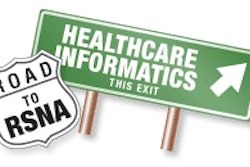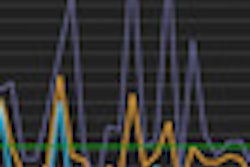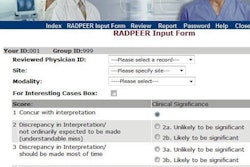"Reducing the number of inappropriate exams ordered results in radiation exposure reduction to a patient and cost savings," said presenter Dr. Andrew Moriarity, a fourth-year resident. But to what extent were the clinicians ordering exams adhering to the ACR recommendations?
Moriarity and Dr. Safwan Halabi retroactively analyzed the ordering patterns of 21 hospitalists over a six-month period for advanced imaging exams. Out of 3,737 submitted requests, 264 met the study requirements and were analyzed.
The hospitalists did well, averaging a score of 7 on a scale of 1 to 9, with 1 meaning "usually not appropriate" and 9 meaning "very appropriate." However, the researchers discovered that there were significant baseline variations. They will discuss how hospitalist demographics, including type of graduate medical education and years in practice, may influence exam ordering habits.
The presentation will also cover variances from the ACR guidelines with respect to clinical history/scenario and to modality. The researchers discovered that no appropriateness criteria currently exist for many common clinical scenarios, and they will provide some examples.



















